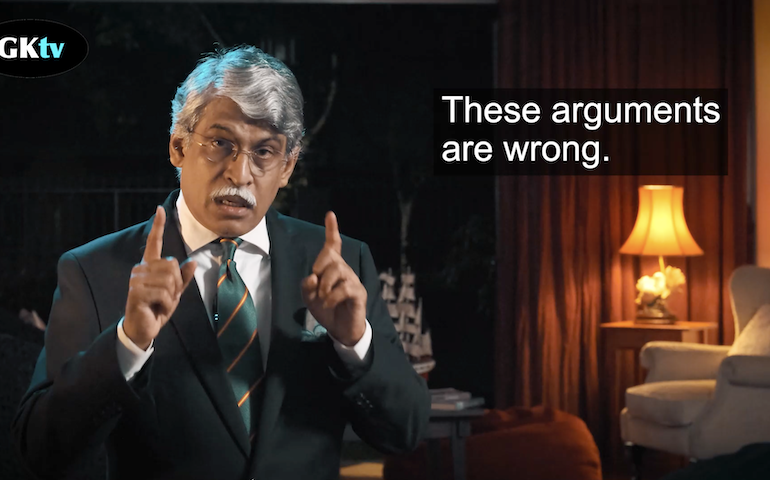Who can summon Parliament to meet — and when?
Only the King.
[1] Why? Let me explain.
A couple of days ago, the King advised that Parliament must be reconvened, ‘as soon as possible’.
There are several laughably silly opposing arguments that have been advanced in the last few hours.
These are: –
[1]. that only the PM can order the Parliament to be reconvened, because, according to Art 40(1), the King has to act ‘in accordance with Cabinet advice’.
[2]. ‘As the Emergency has not ended Parliament cannot be convened’.
[3]. ‘Because the Emergency Ordinance has shut down Parliament, it would be illegal to convene Parliament’.
[4]. ’As soon as possible’ means, ‘when the government sets the time’.
These arguments are wrong. Why?
What are the answers to these allegations?
[2] A simple answer?
A person who has the power to declare an Emergency has the power to end it.
The person who has the power to appoint a prime minister has the power to remove him so long as in both cases, the King acts in accordance with the Constitution.
Who Proclaimed the Declaration of the Emergency? The King.
In whose name are the Ordinances made? The King
Who can end the Emergency? The Prime Minister?
Are you kidding me?
[3]. But the real answer is a shot in the foot. It is a Legal Answer.
First, under Sec. 14(1)(b) of the Emergency Ordinance 2021, ‘Parliament shall be summoned on a date the King thinks appropriate’.
This is what it says:
‘Parliament sitting
- (1). For so long as the Emergency is in force—
(a). the provisions relating to the summoning, proroguing and dissolution of Parliament in the Federal Constitution shall not have effect; and
(b). the Parliament shall be summoned, prorogued and dissolved on a date as the Yang di-Pertuan Agong thinks appropriate.’
(2) …’
All the King has to do is, to appoint a date.
End of story. No need to ask anybody.
The PN Government suspended all the other powers of Parliament, anyway — right?
Neither the Speaker nor the Prime Minister have any say in it.
You know why? The PN Government itself created the Ordinance.
It shot itself in the foot by making section 14.
Section 14 handed over 100% of the power to convene to the King.
He who makes the bed must lie on it!
[4] Second, the Emergency Ordinance is expected — in constitutional theory — to last only a very short time, a few days in case. e.g. a war is upon us.
Then Parliament must swiftly meet to endorse the Ordinance.
That is why it is called an ‘Ordinance’.
Because Parliament has not endorsed it as an ‘Act’.
The Constitution expressly required this in Article 150(3).
[5]. The 3rd excuse is this: ‘As soon as possible’ means, ‘when the government feels like it’.
This argument is also wrong. Sec.14(1)(b) of the Emergency Ordinance, kills it.
[6] Finally, there are important reasons why Parliament must never stop working.
First, they are the people’s voice. That must never be stilled.
Second, the Constitution’s Emergency Powers under Art. 150 expects Parliament to continue to work.
This Emergency unconstitutionally shut it down.
Art 150(5) allows Parliament to continue to meet, to make other laws.
This Government has not allowed Parliament to do that, for reasons no one understands.
Whether the Emergency Ordinance is constitutional is now a major question.
And postponing Parliament only confirms the suspicion that the Emergency Ordinance lacks constitutional legitimacy.





